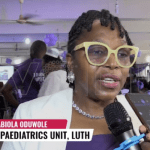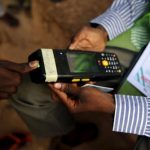The scarcity of credible and accurate data on cancer cases, morbidity, mortality and survival rates is a significant and prevailing challenge that affects effective cancer care in Nigeria.
Due to this, the outcomes for cancer patients remain low as a result of late diagnosis and treatment as well as limited access to facilities.
Nigeria’s cancer epidemic substantially accounts for eleven percent of all new cancer cases on the African continent.
About 125,000 Nigerians are diagnosed with cancer yearly claiming about 80,000 lives at the same time.
In Nigeria, cancer care faces several difficulties revolving around poor awareness, lack of early detection, insufficient funding, inadequate infrastructure, dearth of research on cancer prevention and treatment as well as poverty.
To address these issues of improving patient care, these experts on cancer research and treatment are meeting to highlight possible solutions that will make it easier for patients.
This will be done through examining how the scarcity of accurate data hampers the formulation of strategies and resources for cancer control, research, prevention and treatment.
Cancer funding still remains key to reducing out of pocket spending for patients, the nation’s cancer health fund will be one way to make this happen.
The scarcity of credible and accurate data on cancer cases, morbidity, mortality and survival rates is a significant and prevailing challenge that affects effective cancer care in Nigeria.
Due to this, the outcomes for cancer patients remain low as a result of late diagnosis and treatment as well as limited access to facilities.
Nigeria’s cancer epidemic substantially accounts for eleven percent of all new cancer cases on the African continent.
About 125,000 Nigerians are diagnosed with cancer yearly claiming about 80,000 lives at the same time.
In Nigeria, cancer care faces several difficulties revolving around poor awareness, lack of early detection, insufficient funding, inadequate infrastructure, dearth of research on cancer prevention and treatment as well as poverty.
To address these issues of improving patient care, these experts on cancer research and treatment are meeting to highlight possible solutions that will make it easier for patients.
This will be done through examining how the scarcity of accurate data hampers the formulation of strategies and resources for cancer control, research, prevention and treatment.
Cancer funding still remains key to reducing out of pocket spending for patients, the nation’s cancer health fund will be one way to make this happen.
The scarcity of credible and accurate data on cancer cases, morbidity, mortality and survival rates is a significant and prevailing challenge that affects effective cancer care in Nigeria.
Due to this, the outcomes for cancer patients remain low as a result of late diagnosis and treatment as well as limited access to facilities.
Nigeria’s cancer epidemic substantially accounts for eleven percent of all new cancer cases on the African continent.
About 125,000 Nigerians are diagnosed with cancer yearly claiming about 80,000 lives at the same time.
In Nigeria, cancer care faces several difficulties revolving around poor awareness, lack of early detection, insufficient funding, inadequate infrastructure, dearth of research on cancer prevention and treatment as well as poverty.
To address these issues of improving patient care, these experts on cancer research and treatment are meeting to highlight possible solutions that will make it easier for patients.
This will be done through examining how the scarcity of accurate data hampers the formulation of strategies and resources for cancer control, research, prevention and treatment.
Cancer funding still remains key to reducing out of pocket spending for patients, the nation’s cancer health fund will be one way to make this happen.
The scarcity of credible and accurate data on cancer cases, morbidity, mortality and survival rates is a significant and prevailing challenge that affects effective cancer care in Nigeria.
Due to this, the outcomes for cancer patients remain low as a result of late diagnosis and treatment as well as limited access to facilities.
Nigeria’s cancer epidemic substantially accounts for eleven percent of all new cancer cases on the African continent.
About 125,000 Nigerians are diagnosed with cancer yearly claiming about 80,000 lives at the same time.
In Nigeria, cancer care faces several difficulties revolving around poor awareness, lack of early detection, insufficient funding, inadequate infrastructure, dearth of research on cancer prevention and treatment as well as poverty.
To address these issues of improving patient care, these experts on cancer research and treatment are meeting to highlight possible solutions that will make it easier for patients.
This will be done through examining how the scarcity of accurate data hampers the formulation of strategies and resources for cancer control, research, prevention and treatment.
Cancer funding still remains key to reducing out of pocket spending for patients, the nation’s cancer health fund will be one way to make this happen.
The scarcity of credible and accurate data on cancer cases, morbidity, mortality and survival rates is a significant and prevailing challenge that affects effective cancer care in Nigeria.
Due to this, the outcomes for cancer patients remain low as a result of late diagnosis and treatment as well as limited access to facilities.
Nigeria’s cancer epidemic substantially accounts for eleven percent of all new cancer cases on the African continent.
About 125,000 Nigerians are diagnosed with cancer yearly claiming about 80,000 lives at the same time.
In Nigeria, cancer care faces several difficulties revolving around poor awareness, lack of early detection, insufficient funding, inadequate infrastructure, dearth of research on cancer prevention and treatment as well as poverty.
To address these issues of improving patient care, these experts on cancer research and treatment are meeting to highlight possible solutions that will make it easier for patients.
This will be done through examining how the scarcity of accurate data hampers the formulation of strategies and resources for cancer control, research, prevention and treatment.
Cancer funding still remains key to reducing out of pocket spending for patients, the nation’s cancer health fund will be one way to make this happen.
The scarcity of credible and accurate data on cancer cases, morbidity, mortality and survival rates is a significant and prevailing challenge that affects effective cancer care in Nigeria.
Due to this, the outcomes for cancer patients remain low as a result of late diagnosis and treatment as well as limited access to facilities.
Nigeria’s cancer epidemic substantially accounts for eleven percent of all new cancer cases on the African continent.
About 125,000 Nigerians are diagnosed with cancer yearly claiming about 80,000 lives at the same time.
In Nigeria, cancer care faces several difficulties revolving around poor awareness, lack of early detection, insufficient funding, inadequate infrastructure, dearth of research on cancer prevention and treatment as well as poverty.
To address these issues of improving patient care, these experts on cancer research and treatment are meeting to highlight possible solutions that will make it easier for patients.
This will be done through examining how the scarcity of accurate data hampers the formulation of strategies and resources for cancer control, research, prevention and treatment.
Cancer funding still remains key to reducing out of pocket spending for patients, the nation’s cancer health fund will be one way to make this happen.
The scarcity of credible and accurate data on cancer cases, morbidity, mortality and survival rates is a significant and prevailing challenge that affects effective cancer care in Nigeria.
Due to this, the outcomes for cancer patients remain low as a result of late diagnosis and treatment as well as limited access to facilities.
Nigeria’s cancer epidemic substantially accounts for eleven percent of all new cancer cases on the African continent.
About 125,000 Nigerians are diagnosed with cancer yearly claiming about 80,000 lives at the same time.
In Nigeria, cancer care faces several difficulties revolving around poor awareness, lack of early detection, insufficient funding, inadequate infrastructure, dearth of research on cancer prevention and treatment as well as poverty.
To address these issues of improving patient care, these experts on cancer research and treatment are meeting to highlight possible solutions that will make it easier for patients.
This will be done through examining how the scarcity of accurate data hampers the formulation of strategies and resources for cancer control, research, prevention and treatment.
Cancer funding still remains key to reducing out of pocket spending for patients, the nation’s cancer health fund will be one way to make this happen.
The scarcity of credible and accurate data on cancer cases, morbidity, mortality and survival rates is a significant and prevailing challenge that affects effective cancer care in Nigeria.
Due to this, the outcomes for cancer patients remain low as a result of late diagnosis and treatment as well as limited access to facilities.
Nigeria’s cancer epidemic substantially accounts for eleven percent of all new cancer cases on the African continent.
About 125,000 Nigerians are diagnosed with cancer yearly claiming about 80,000 lives at the same time.
In Nigeria, cancer care faces several difficulties revolving around poor awareness, lack of early detection, insufficient funding, inadequate infrastructure, dearth of research on cancer prevention and treatment as well as poverty.
To address these issues of improving patient care, these experts on cancer research and treatment are meeting to highlight possible solutions that will make it easier for patients.
This will be done through examining how the scarcity of accurate data hampers the formulation of strategies and resources for cancer control, research, prevention and treatment.
Cancer funding still remains key to reducing out of pocket spending for patients, the nation’s cancer health fund will be one way to make this happen.














